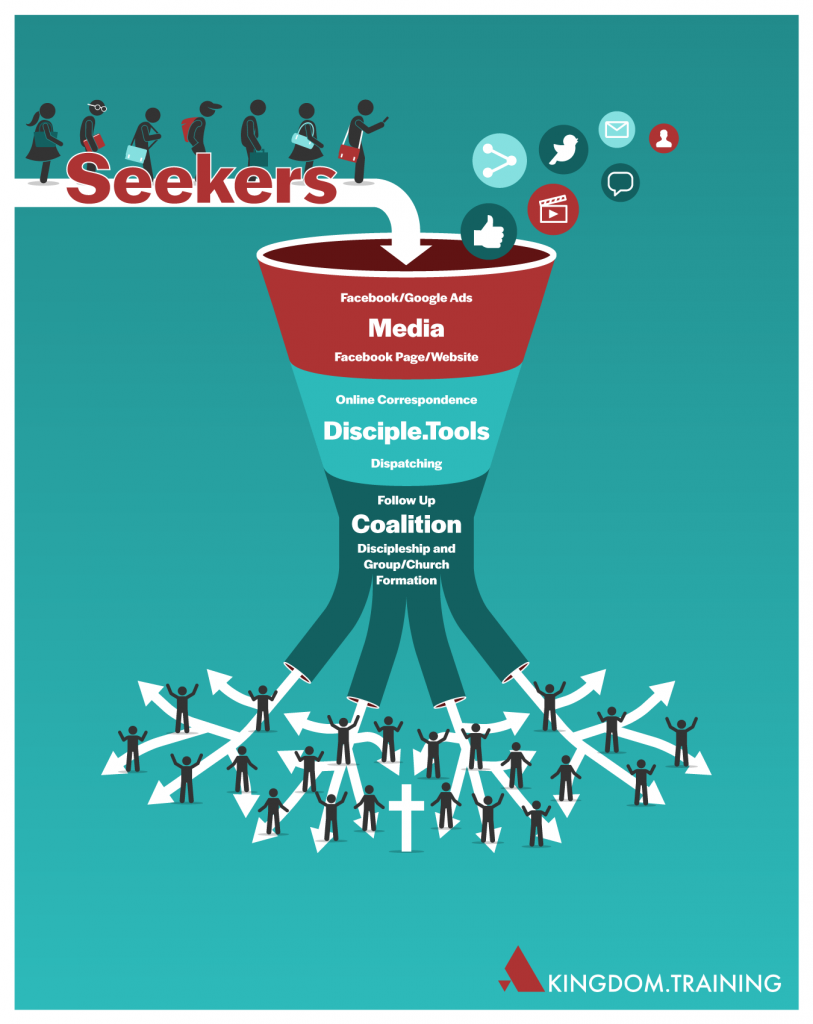
When we think of a disciple making leader, we often think of Paul as our model. His letters instructing young leaders how to make disciples all across Asia minor make up more of the New Testament than anyone else’s writings. They contain some of the most practical and strategic advice in all of the Bible, because he was primarily concerned with coaching people to live a disciple making lifestyle.
The word coach comes from the idea of a stagecoach, which were carriages drawn by horses to move something from one place to another. This is exactly what a good coach does. She or he helps move someone from one stage in leadership to the next. A coach is not the do-er. Their job is primarily to ask good questions that provoke a leader to consider what their next step should be. So, if you find yourself in a coaching relationship, here are 6 simple questions to ask your coachee.
1. How are you?
This might sound overly simplistic, but it’s surprising how often it gets left out. Asking how someone is doing at the start of a coaching conversation is important for two reasons:
- It’s strategic. People have needs that have to be met before they can focus on other things. They can’t be productive at work unless they have food in their bellies and a roof over their head, for example. Similarly, they might really struggle in making disciples that multiply if there is a personal crisis going on.
- It’s just the right thing to do! Even if it weren’t strategic to talk to someone about their inner world it would still be how you need to start the conversation, because it’s the loving thing to do. People are an end in and of themselves, not a means to an end. We are commanded by Jesus to treat people as such.
2. What does the Bible say?
When we make disciples that multiply, it’s important to remember that we’re not making disciples of ourselves; we’re making disciples of Jesus! One of the best ways to do that is to point them to scripture. As Jesus himself said,
‘“You study the scriptures diligently because you think that in them you have eternal life. These are the very scriptures that testify about me.”’ John 5:39
So, when a leader asks you for advice, it’s good to get in the habit of holding your tongue and—instead of telling them what you think—ask them what the Bible says. This causes them to look in the text and decide for themselves. Then, the answer will have come from within them, and they will have ownership over it. It sets them up for so much more success than if you had just told them directly what to do.
If you need help knowing which verse to turn to, check out the topics section of the Waha app’s library. There, you will find Discovery Bible Studies on a range of subjects from theology, to crisis situations, reconciliation, and even advice about money and work.
3. What is the Holy Spirit telling you?
While scripture provides the best answer 90% of the time, there are still moments where a leader faces something highly contextual or nuanced. In those moments, there isn’t always a clear answer. But that’s okay because, as the verse quoted above says, it’s not the scriptures themselves that help us. It’s the God who they reveal. This God is alive and active within each one of us through the Holy Spirit.
A good coach knows this and, before giving directive advice, will always encourage their coachee to listen to the inward voice of the Holy Spirit. This is important because the only one who can truly bring about change within us is God. That’s why so many people in scripture pray things like, “Create in me a pure heart, O God!” (Ps 51:10).
So, if you want to help someone you are coaching, teach them to do a simple listening prayer:
- Invite them to close their eyes and quiet their heart and mind.
- Then, encourage them to ask their question to the Lord in prayer.
- Finally let them wait on an answer.
Whenever an answer pops into their head, have them test that answer by asking if it contradicts anything in scripture and if it sounds like something a loving God would say. If the answer passes that test, have faith that God has spoken! Also, know that as fallen human beings, we don’t always hear things perfectly, but God honors our sincere attempts and has a way of working things out for good, even if we don’t get it perfectly right every time.
4. What will you do this week?
Real transformation only comes when a change makes it over the long haul, and that only happens when habits are formed, which is why it’s important to immediately put into practice whatever answer the coachee received from God. In Matthew 7, Jesus explains that someone who hears something from him and does not act on them is like a foolish person who builds their house on a weak foundation. It might look good at first, but it doesn’t last very long.

5. How is your family?
Sometimes it can be easy to get excited about going out and changing the world through disciple making “out there” and forget all about the families God has built immediately around us. There is no greater form of disciple making than raising children in a loving homethat is soaked in scripture. Similarly, marriage seems to be God’s plan A for revealing his covenant love to the world around us.
Because of this, it’s absolutely mission critical that family comes first for anyone who wants to make disciples that multiply. Be sure to spend plenty of time coaching a leader to spend more time with their kids and create space to invest in their spouse. As mentioned above, a good way to facilitate this is with the Waha app, which has a topical study for marriage, parenting, and singleness, too.
6. When will you rest?
There is a pair of brothers we (the Waha team) know, who lead a massive movement in South India. As a leadership team, they are doing their best to steward a network of over 800 house churches, multiplied out to the 20th generation. We sometimes see them in passing at disciple making conferences and ask how they are doing. They are always overjoyed to be traveling and when we ask why, they say it’s because they don’t have cell phone service so no one can call them with problems to deal with!
It’s pretty common to see a certain type of individual raised up to lead a disciple making movement. They tend to be very high-capacity individuals who live their lives in an action-oriented way. Unfortunately, it’s also common to hear about giant disciple making movements dissolving because the leaders who shepherd them burn out. Rest assured (Pun very much intended!) this is not God’s heart for his people. Jesus tells us that his yoke is easy, and his burden is light (Matt 11:30) and he models this for us by going to a quiet place to seek rest and solitude often (Luke 5:16). He reminds us that the sabbath day of rest was made for men, not the other way around (Mark 2:27).
All this means that high-action leaders need to be reminded to stop and take note of their inner world. They need help remembering to reorientate themselves to find their identity in being with God, more than just doing for God.
Conclusion
Coaching is what moves the ball forward in disciple making. If you’ve taken advantage of the Disciple Making Course, and the Waha app, you’ve probably seen the beginnings of multiplication. Perhaps you’ve started a Disciple Making Community with some of your friends or a Discovery Group with some seekers in your community. You’ve probably even seen those groups multiply a couple of times. We want to encourage you that there is even more transformation for you and your community through coaching! All you have to do is find a Person of Peace and ask good questions.
If you think you’ve already found a POP, check out this article on your next steps. And, if you want to get the full picture on how to transform your community through making disciples that multiply, gather a group of friends or family and get started on the Disciple Making Course today!
Guest Post by Team Waha

